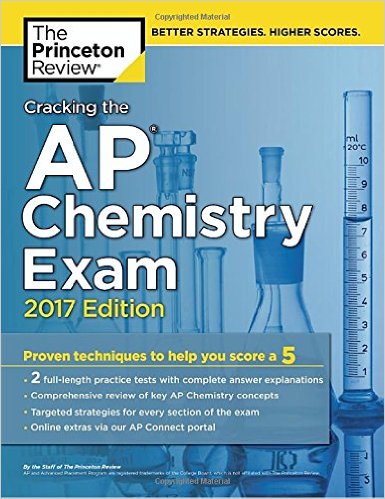Course Review Uncensored: AP Chemistry

AP sciences are notoriously known for demanding an excruciating amount of work. One might say that the newly updated 2018-2019 Course Description Guide stating AP Chemistry as “the equivalent of a college general chemistry course” is an understatement of the rigor. Speaking from experience, while it is a formidable course, it is the perfect class to take in order to develop necessary skills. Skills such as being organized, proactive, and diligent are grown through taking this class. Other than these skills, AP Chemistry will also give you plenty of tests, but not so much homework.
AP Chemistry demands a certain amount of organization from students. First and foremost, the amount of papers distributed is overwhelming. Organization is key to prepare for upcoming quizzes and tests – you will need all materials available to study. A binder divided with folders is generally the easiest way to go about this.
One will also become more proactive from taking this class. By this, I mean it teaches you to always prepare ahead of time for anything. Doing a lab the night before does not pay off well nor does cramming for a chapter test. Spacing and planning for this class will put you on the right track for earning a good grade.
Diligence is perhaps the most valuable skill learned in this class. Showing a persistent effort will help you survive the year. Slacking isn’t an option in AP Chem. Since there is an adequate workload, the smartest thing to do is to put in your maximum effort. Completing all assignments or notes with your best work is best so that you won’t have to make up the mediocre work before tests.
As far as AP sciences go, people generally agree AP Chem could be the toughest. Generally, chapter tests are on block days, so are long enough to take – at most – an hour and twenty minutes. Tests consist of multiple choice, and then a short answer section. Some of the multiple choice’s are taken straight from the AP exams. There are usually two chapters worth of content crammed into these two-period tests. However, the advantage is that AP Chem tests are usually only every 3-4 weeks. With the right amount of studying and preparation, students can do well on these tests. It is not rare, however, to find a student performing poorly on tests. On the other hand, labs performed in this course are perfect to boost one’s grade. The labs can sometimes be tedious and will require several periods of work to complete. They count for a large portion of the grade in this class, which is a helpful grade booster. The class generally does one lab every two weeks. Write-ups for labs generally are about 4-5 pages of work. This will include an introduction (the majority of actual writing needed for the lab), data, calculations and more depending on each lab. It is usually difficult to receive low grades for labs. While the work to execute the lab may be difficult, the write-up is what gets graded. They are usually straightforward, which allows the majority of students to earn points back from the difficult chapter tests.
The most important thing for this class, however, is understanding concepts. One should truly understand chemistry before daring to take this class. It is not a class of memorization, nor of simple equations. It is heavily focused on being able to comprehend concepts of chemistry, and being able to apply them to problems on tests and labs. The teacher of this course, Mrs. Camporese, is a great help when it comes to fathoming these ideas. While this is a very fast-paced class, as expected from an AP, Mrs. Camporese finds time to go back and answer any lingering questions students may still have.
All in all, AP Chemistry is something you will want to take if you love chemistry and if you believe you can keep up with the class. It is a rigorous course, but there is not too much homework accompanying it. Labs are helpful for boosting grades, which can even out any poor test grades. Many skills are learned throughout the course, helping students in and out of the classroom. And lastly, this is a concept-based class in which the teacher is vastly accommodating.










